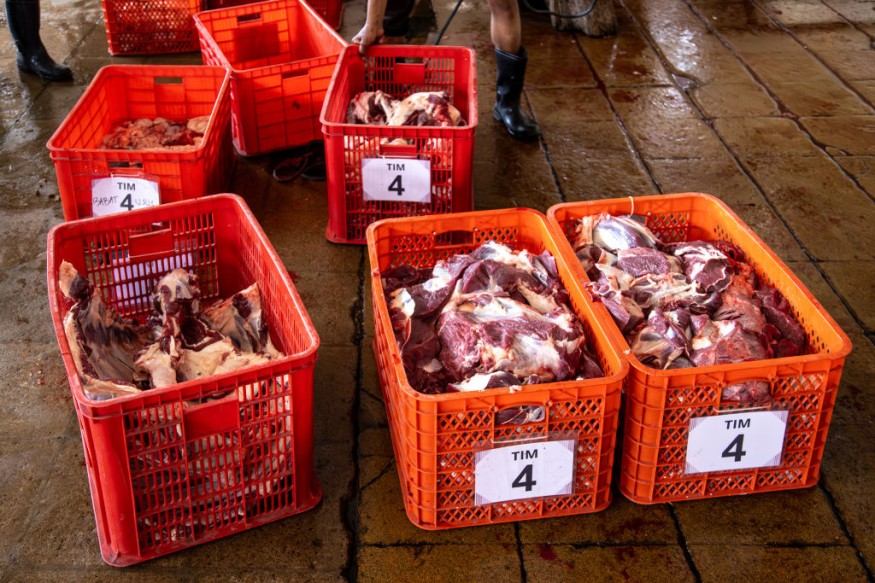A recent study disclosed that consumer preference for laboratory-grown meat cultivated from animal cells will expand over the next 30 years, potentially resulting in lower emissions, water and land use, and emissions.
Staple Meals

Scientists from the University of York's FixOurFood program predict that meals like cricket salad and lab-grown burgers would become the staple meals in 2054.
According to a report for the Co-op supermarket, because of the increased nutritional value of termites, crickets, locusts, and grasshoppers, people will be consuming a greater variety of insect preserves and proteins in their daily diet.
Meanwhile, seasonal produce that is obtained locally and conventional preservation techniques like pickling and fermenting will become more popular in vegetable consumption.
"The last 30 years we have seen scientific leaps into more sustainable produce which were unimaginable to most back in 1994. From lab-grown meat to vertical farming, the future of food is set to revolutionise how we eat," said Bob Doherty, director of FixOurFood and dean of the School for Business and Society at the University of York.
In a survey conducted for the Co-op's most recent Responsible Retailing Report, which has surveyed nearly 70,000 people since it began in 1994, it was discovered that 72% of consumers have grown more concerned with sustainable and ethical food due to concerns about climate change, animal welfare, plastic pollution, and fair wages for workers around the world.
But compared to 62% in 1994, just over half of customers (54%) today think they would be willing to pay more for ecological and ethical items.
Currently, 61% of customers claim to only buy food that they need. Other factors that influence a consumer's decision to buy include a product's British origins (42%), as well as whether or not it comes in recyclable packaging (38%).
The survey said that 88% of respondents claim to eat more fruits and vegetables these days, while 87% make healthier choices.
Doherty added that people in Britain will be eating insects on their dinner plates by 2054, and it's possible that crickets could become more popular than wholegrains.
The effects of climate change will also cause a shift in consumer preferences toward locally grown food, with Surrey avocados soon to be a thing. Food that has been 3D printed might possibly be introduced.
The Co-op's head of ethics, sustainability, and policy, Cathryn Higgs, stated that while the food business has made great strides, consumers are rightfully asking us to go farther, with honesty and integrity at the center of our decision-making.
US Military Food
The US Department of Defense (DoD)-sponsored bio-industrial manufacturing business BioMADE is suggesting that US soldiers be fed lab-grown meat in an effort to "reduce the CO2 footprint of food production."
The DoD increased BioMADE's funding by $450 million the previous year. The investment, according to a statement made at the time by DoD Mil Program Director Stephen Luckowski, was a clear manifestation of the Department's plan to advance technologies that will be essential to maintaining America's sophisticated manufacturing capabilities.
They claimed that the research & development conducted by BioMADE is already producing notable advancements in the fields of bio-manufactured proteins, chemicals, textiles, rubber, and more.
And now, the company wants to use cutting-edge cell culture techniques to produce cultured meat and protein in order to generate food, including meat, for the US military.
The strategy additionally involves "production of nutrient-dense military rations via fermentation processes" along with "utilizing one carbon molecule (C1) feedstocks for food production."
Related Article : Finnish Company Develops Sustainable Lab-Grown Meat Using Air, Electricity and Microbes
© 2025 NatureWorldNews.com All rights reserved. Do not reproduce without permission.





